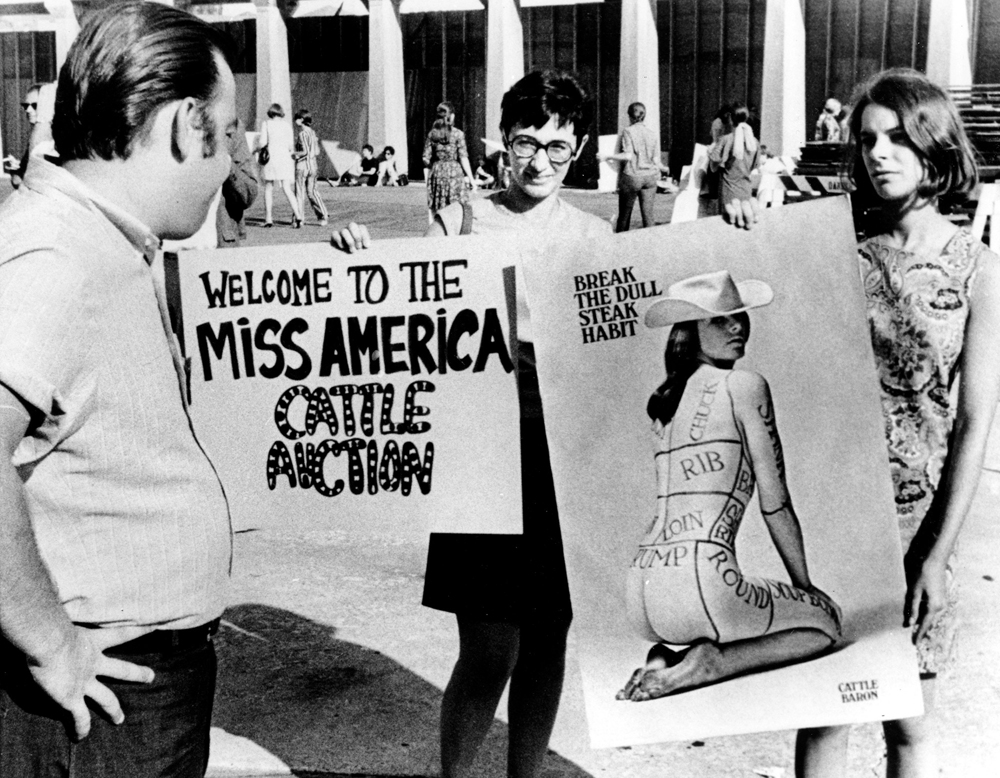
- Born 7 September 1968. Outside, convened by New York Radical Women, about 400 women met to protest the competition.

The following day, in the New York Post, the article written by journalist Lindsy Van Gelder had the following headline: Bra Burners and Miss America (Miss America). And since then, in the last half century, smoking bras has been a symbol of feminist struggle, although in that protest nobody burned bras.
Four of the feminist women who approached cars and buses from New York to Atlantic City had tickets and had the opportunity to access the theater. There, Women’s Liberation! A banner was opened in which half a dozen calls for the release of women could be voiced until they were violently expelled by the police.
A series of symbolic acts were carried out abroad. They crowned a sheep to report that these kinds of contests treated women like they were cattle. Kitchen utensils, Playboy and Cosmopolitan magazines, fake eyelashes, makeup, heeled shoes, corsses... And some of the breasts too. They also intended to set the dustbin on fire, but the police stopped it.
In the leaves distributed there, they explained that their claims were not limited to feminism. They received anti-racist proclamations – only white women were accepted at the end of Miss America since its foundation in 1921 – as well as against militarism or consumerism. But the New York Post headline burned the bras and turned off all those nuances.
Bonnie J. The feminist writer Dow believes that the link between feminism and fasteners' consumption was driven by antifeminists to override the movement for women's rights. “They wanted us to believe that feminists acted lightly and that taking off our bras and smoking was a trick to attract men.”
Carol Hanisch, one of the organizers of the protest, later said, “If the media had not called us breast smokers, all women in the United States would have said. United States they would have joined us.”